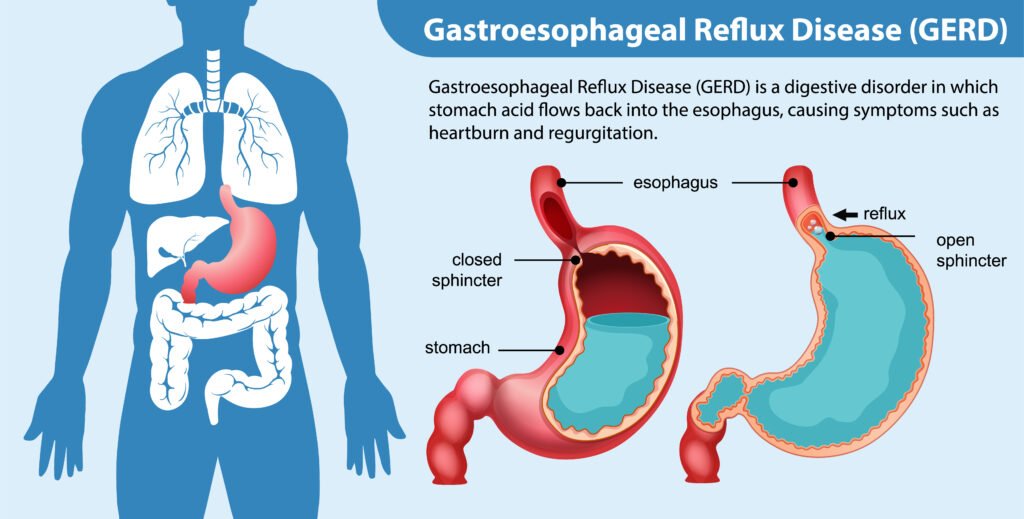FREE SHIPPING OVER $50
Gerd VA Rating 2024: Know Your Benefits
Navigating the complexities of Veterans Administration ratings can be daunting, especially when dealing with conditions like gastroesophageal reflux disease (GERD). Understanding your Gerd VA rating is crucial for receiving the benefits you deserve. This comprehensive guide will help you understand the intricacies of the VA rating for GERD and how to maximize your benefits.
Key Takeaways

What is GERD and How Does It Affect Veterans?
GERD is a chronic digestive disorder where stomach acid or bile irritates the food pipe lining. For many veterans, this condition can be a result of the physical and emotional stresses experienced during service. The VA rating for Gerd acknowledges the impact of this condition on your daily life and provides a framework for compensation.
Why is the VA Rating for GERD Important?
The VA rating determines the extent of benefits you can receive. It’s not just about financial compensation; it’s about recognizing the sacrifices you’ve made and ensuring you get the support you need.
Understanding the GERD VA Rating System
Starting from May 19, 2024, the VA will rate GERD under its own Diagnostic Code, DC 7206. This is a new diagnostic code created specifically for rating GERD symptoms. Under DC 7206, a GERD VA disability claim can be rated at 0%, 10%, 30%, 50%, or 80%, depending on your symptoms.
This change is part of the VA’s effort to ensure that the rating schedule uses current medical terminology and provides detailed and updated criteria for evaluation of digestive conditions for disability rating purposes.
Key Criteria for GERD VA Rating
- Frequency of Symptoms: The VA assesses how often you experience symptoms like heartburn, regurgitation, and difficulty swallowing.
- Severity of Symptoms: This includes the intensity of your symptoms and their impact on your ability to function normally.
- Impact on Health: The rating also considers any complications arising from GERD, such as esophagitis or Barrett’s esophagus.
How to Apply for GERD VA Rating
Applying for a Veterans Administration rating for GERD involves several steps. Here’s a simplified process to guide you:
- Medical Documentation: Gather all relevant medical records that document your GERD diagnosis and treatment.
- Service Connection: Establish a direct connection between your GERD and your military service. This might involve providing evidence of stressful conditions during service that could have triggered or aggravated your GERD.
- VA Form 21-526EZ: Complete and submit this form to start your claim. Be thorough and precise in detailing your symptoms and their impact on your life.
Pro Tip: Regularly consult with a VA-accredited representative to ensure your application is complete and accurately reflects your condition.
Maximizing Your VA Benefits for GERD
Receiving the appropriate VA rating for Gerd can significantly impact your quality of life. Here are some strategies to ensure you get the maximum benefits:
- Detailed Medical Evidence: Regularly visit your healthcare provider to document ongoing symptoms and treatments. Detailed medical records are essential in proving the severity of your condition.
- Personal Statements: Write a personal statement detailing how GERD affects your daily life. Include specifics about pain, discomfort, and any limitations it imposes on your activities.
- Buddy Statements: Gather statements from family, friends, or fellow service members who can attest to the impact of GERD on your life.
Example: A veteran successfully increased his rating by providing comprehensive medical records, a detailed personal statement, and supporting buddy statements that highlighted the daily challenges he faced due to GERD.
Common Challenges and How to Overcome Them
Navigating the Veterans Administration rating process can be challenging. Here are common issues veterans face and tips to overcome them:
- Insufficient Medical Evidence: Ensure all medical records are up-to-date and comprehensive. Regular check-ups and detailed documentation are key.
- Lack of Service Connection: Work with a VA-accredited representative to establish a clear link between your military service and GERD.
- Underestimation of Symptoms: Be honest and detailed about your symptoms. Underreporting can lead to a lower rating and fewer benefits.
Did You Know? The VA often underestimates the impact of GERD on veterans’ lives. Detailed and consistent documentation can make a significant difference in your rating.
The Importance of Regular VA Reviews
Your Gerd VA Rating is not set in stone. Regular reviews and re-evaluations can ensure your rating accurately reflects your current condition. If your symptoms worsen or new complications arise, you may be eligible for an increased rating.
Steps to Request a Review
- Gather Updated Medical Records: Ensure all recent medical visits and treatments are documented.
- Submit a Request for Review: Use VA Form 21-526EZ to request a re-evaluation.
- Consult with a Representative: A VA-accredited representative can guide you through the review process and help maximize your chances of an increased rating.
Example: A veteran initially received a 10% rating for GERD but was later increased to 30% after providing updated medical records and personal statements detailing the worsening of symptoms.
Conclusion
Understanding your Gerd VA rating is essential for receiving the benefits you deserve. By thoroughly documenting your condition, understanding the application process, and regularly reviewing your rating, you can ensure you receive the maximum support from the Veterans Administration.
Related Articles
If you enjoyed this blog post you can explore more health insurance reviews for your friends and family like:
- Sleep Apnea VA Rating: Understanding Your Benefits
- Chronic Fatigue Syndrome VA Rating: Understanding Your Benefits
- Ameritas Dental Insurance Review
- Spirit Dental Insurance Review
- United Dental Insurance Review
- Anthem Dental Insurance Review
- What is Roid Gut and How Can You Eliminate It?
- Dealing with Roid Rage Symptoms: A Step-by-Step Treatment Guide







